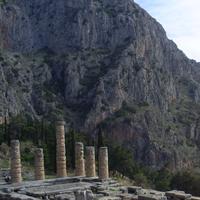Ulixes 1 (Ritchie's Fabulae Faciles)
Odysseus|Ritchies (1)||einfache Geschichten
Ulysses|Ritchie's|Stories|Easy stories
Ulisse|||
||fábulas|
Ulysses 1 (Ritchies einfache Geschichten)
Ulysses 1 (Ritchie's Easy Tales)
Ulises 1 (Los cuentos fáciles de Ritchie)
Ulisses 1 (contos fáceis de Ritchie)
Ulisse 1 (Fabulae Faciles di Ritchie)
Urbem Troiam a Graecis decem annos obsessam esse satis constat; de hoc enim bello Homerus, maximus poetarum Graecorum, Iliadem opus notissimum scripsit.
die Stadt|Troja||den Griechen||Jahre|belagert|vergangenheit||es steht fest||||Krieg|Homer|der größte|der Dichter|der Griechen||Werk||verfasst
The city|Troy|by|by the Greeks|ten years|years|"besieged"|"to have been"|It is well|It is known|about|this|for|war|Homer|greatest of poets|of the poets|"of the Greeks"|The Iliad|work|most well-known|wrote
città|Troia|dai|Greci|dieci|anni|assediata|essere|abbastanza|è certo|su|questo|infatti|guerra|Omero|massimo|dei poeti|Greci|Iliade|opera|notissima|scrisse
|||||||||明らかである||||||||||||
The Greeks besieged city of Troy for ten years and it is well established; For this war, Homer, the greatest Greek poets Iliad wrote the best known.
Los griegos sitiaron la ciudad de Troya durante diez años y está bien establecida; Para esta guerra, Homero, los más grandes poetas griegos, la Ilíada, escribió los más conocidos.
トロイアの都はギリシャ人によって10年間包囲されたことはよく知られています。この戦争について、最も偉大なギリシャの詩人ホメロスは、有名な作品『イリアス』を書きました。
Совершенно ясно, что город Троя был осажден греками в течение десяти лет; ведь Гомер, величайший из греческих поэтов, написал об этой войне свое самое известное произведение — «Илиаду».
È certo che la città di Troia è stata assediata dai Greci per dieci anni; su questa guerra, infatti, Omero, il più grande dei poeti greci, scrisse l'opera più famosa, l'Iliade.
Troia tandem per insidias capta, Graeci longo bello fessi domum redire maturaverunt.
Troy|"at last"||"treachery"|"having been captured"|The Greeks|"long" or "lengthy"|war|"weary" or "exhausted"|home|return home quickly|"hastened to return"
Troia|finalmente|attraverso|insidie|catturata|Greci||guerra|stanchi|a casa|tornare|decisero
Tróia|finalmente||armadilhas|capturada|Gregos|longo prazo||cansados||retornar|eles se apressaram
||||||||疲れ果てた|||急いで帰った
Troy finally taken by the plot, by far the war and return home tired maturavit.
とうとうトロイアは策略によって陥落し、疲れ果てたギリシャ人たちは長い戦いの末に家に帰ることを急いだ。
Troia finalmente capturada por meio de emboscadas, os gregos, cansados de uma longa guerra, apressaram-se a retornar para casa.
После того как Троя наконец была взята из засады, утомленные долгой войной греки были готовы вернуться домой.
Troia, infine, catturata con inganni, i Greci, stanchi dopo una lunga guerra, si affrettarono a tornare a casa.
Omnibus rebus igitur ad profectionem paratis navis deduxerunt, et tempestatem idoneam nacti magno cum gaudio solverunt.
|things|therefore||departure|"having been prepared"|ship|set sail||the storm|"suitable" or "favorable"|having found||with||"set sail"
a tutti|cose|quindi|per|partenza|preparati|nave|condussero|e|tempesta|favorevole|trovata|grande|con|gioia|salparono
Para todos|coisas|portanto||partida|preparados|navio|desceram||tempestade|adequada|obtendo, conseguindo|grande||grande alegria|soltaram as amarras
|||||||they launched||||得た||||出航した
Are preparing for the expedition, the ship is, therefore, to conduct them all was in readiness, and the raging of an appropriate basis to the great joy they paid it.
そこで、すべての準備が整ったため、彼らは船を陸に下ろし、適した天候を見つけて大きな喜びをもって船を出港させた。
Portanto, com todas as coisas preparadas para a partida, eles baixaram os navios e, tendo encontrado uma tempestade favorável, partiram com grande alegria.
Подготовив все вещи к отбытию, они увели корабль и, найдя подходящую погоду, с великой радостью расплатились.
Pertanto, dopo aver preparato tutto per la partenza, condussero le navi e, trovata una tempesta favorevole, salparono con grande gioia.
Erat inter primos Graecorum Ulixes quidam, vir summae virtutis ac prudentiae, quem dicunt nonnulli dolum istum excogitasse quo Troiam captam esse constat.
|"among" or "amongst"|"the foremost"|"of the Greeks"||a certain|man|"greatest" or "highest"|virtue|"and"|"of great wisdom"||"they say"|"some" or "some people"|trick|"that" or "that trick"|"to have devised"|||"having been captured"||"is known"
C'era|tra|i primi|dei Greci|Ulisse|un certo|uomo|di grande|virtù|e|prudenza|il quale|dicono|alcuni|inganno|quel|avesse concepito|con cui|Troia|catturata|essere|è certo
||primos|||um certo||grande virtude|||prudence|quem|dizem|alguns dizem|estratagema|aquele plano|pensado cuidadosamente|onde||capturada||é certo
||||||||||||||策略|||||||
Ulysses among the first of the Greeks was a certain man, a man of the highest virtue and prudence, and conceived in which the capture of Troy, whom some of them say this is admitted to be guilty of deceit.
ギリシャ人の先駆者の中には、ウリクスという人がいた。彼は最高の美徳と賢明さを持つ人物であり、トロイが陥落したことを証明するいくつかの策略を考案したと言われている。
Entre os primeiros dos gregos estava Ulisses, um homem de grande virtude e prudência, que alguns dizem ter concebido aquele estratagema pelo qual se estabelece que Troia foi capturada.
Среди первых греков был некий Одиссей, человек величайшей доблести и благоразумия, который, как говорят некоторые, изобрел тот трюк, с помощью которого была взята Троя.
C'era tra i primi dei Greci un certo Ulisse, uomo di somma virtù e prudenza, che alcuni dicono aver ideato quel trucco con cui si dice che Troia sia stata conquistata.
Hic regnum insulae Ithacae obtinuerat, et paulo antequam cum reliquis Graecis ad bellum profectus est, puellam formosissimam, nomine Penelopen, in matrimonium duxerat.
||of the island|of Ithaca|had obtained||"a little"|before||with the rest|||war|set out||the beautiful girl|most beautiful girl|named|Penelope||in marriage|had married
Qui|regno|dell'isola|di Itaca|aveva ottenuto|e|poco|prima che|con|gli altri|Greci|per|guerra|partito|è|ragazza|bellissima|di nome|Penelope|in|matrimonio|aveva sposato
aqui|reino|ilha|Ítaca|obtivera||um pouco|antes||restantes|||guerra|partiu-se para||menina|mais bonita|chamada|Penélope||matrimônio|tinha casado
||||占有していた|||||他の||||||||||||
At this point the kingdom of the island of Ithaca, and had been, and a little before the war, when he set out to the rest of the Greeks is to say, the most beautiful of the young woman, whose name was Penelope, in marriage, he had married.
彼はイタカ島の王国を支配しており、他のギリシャ人と戦争へ向かう直前に、名前をペネロペという美しい少女と結婚していた。
Aqui havia obtido o reino da ilha de Ítaca, e pouco antes de partir para a guerra com os demais gregos, casou-se com a bela moça chamada Penélope.
Здесь он получил царство на острове Итака и незадолго до того, как пошел войной на остальных греков, женился на очень красивой девушке по имени Пенелопа.
Questi aveva ottenuto il regno dell'isola di Itaca, e poco prima di partire per la guerra con gli altri Greci, aveva sposato una ragazza bellissima, di nome Penelope.
Nunc igitur cum iam decem annos quasi in exsilio consumpsisset, magna cupiditate patriae et uxoris videndae ardebat.
|||"now already"|||||in exile|had spent||with great desire|of the homeland||wife|"to see"|"was burning"
Ora|quindi|quando|già|dieci|anni|quasi|in|esilio|avesse trascorso|grande|desiderio|della patria|e|della moglie|da vedere|ardeva
||||||quase||exílio|tivesse consumido|grande|cobiça|terra natalis||esposa|de ver ver|ardente desejo
|||||||||過ごしていた||強い欲望||||見ること|burned with desire
So now he has already spent ten years in exile, as a large country and a wife's desire to see the torch.
そのため、すでに10年間亡命のような生活を送っていた彼は、祖国と妻を見ることへの大きな熱望が燃えていた。
Agora, portanto, depois de ter passado quase dez anos em exílio, ardia de grande desejo de ver sua pátria e sua esposa.
Теперь, поэтому, когда он уже провел десять лет как бы в изгнании, он горел большим желанием увидеть свою страну и свою жену.
Ora, quindi, dopo aver trascorso quasi dieci anni in esilio, ardeva di grande desiderio di rivedere la patria e la moglie.
SENT_CWT:AFkKFwvL=5.28 PAR_TRANS:gpt-4o-mini=1.77
it:AFkKFwvL
openai.2025-02-07
ai_request(all=9 err=0.00%) translation(all=7 err=0.00%) cwt(all=115 err=3.48%)

